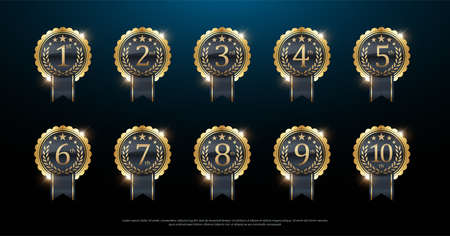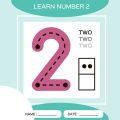1. Introduction to Numerology in the American Context
Numerology is an ancient system that uses numbers to reveal insights about personality, life paths, and even career choices. While it has roots in various cultures around the world, numerology has found a unique place in modern American society, especially as more people seek alternative ways to make important life decisions.
What Is Numerology?
At its core, numerology assigns meanings to numbers based on your name and birthdate. These numbers—like Life Path, Destiny, and Soul Urge numbers—are believed to hold clues about your strengths, weaknesses, and potential opportunities. In the U.S., numerology is often used alongside other personal development tools to gain clarity about career direction and life purpose.
Cultural Relevance in the U.S.
Americans are known for embracing self-improvement trends and alternative practices. From astrology apps to personality tests like Myers-Briggs and Enneagram, there’s a growing curiosity about what can help guide personal and professional growth. Numerology fits right into this landscape because it offers individualized advice without being tied to any specific religion or belief system. This makes it accessible and appealing to a wide range of job seekers across the country.
Why Are Americans Turning to Numerology for Career Choices?
The American job market is dynamic and competitive. Many people feel uncertain about their next steps or dissatisfied with traditional career advice. As a result, more job seekers are open to exploring new methods for decision-making. Numerology appeals because it offers:
| Reason | Description |
|---|---|
| Personalization | Numerology provides tailored guidance based on individual traits. |
| Self-Discovery | It encourages self-reflection and deeper understanding of one’s motivations. |
| Alternative Perspective | Offers a fresh angle when traditional career counseling feels limiting. |
| Cultural Openness | Fits with America’s openness to new ideas and holistic approaches. |
The Rise of Alternative Career Decision-Making Methods
From Silicon Valley tech hubs to creative industries in New York and Los Angeles, Americans are blending intuition with practical planning more than ever before. Numerology is becoming part of this toolkit as people look for meaningful work that aligns with their values and talents. As the workplace evolves, so too do the strategies Americans use to navigate their careers—and numerology is quickly gaining traction as one of those tools.
2. Personal Numbers and Their Influence on Career Paths
Numerology is more than just a mystical concept—it can actually provide practical insights for Americans navigating the job market. Two of the most important numbers in numerology are the Life Path number and the Expression number. These personal numbers help highlight your strengths, talents, and natural inclinations, giving you clues about which career paths might be a great fit.
Understanding Your Life Path Number
Your Life Path number is like your energetic signature. It’s calculated using your birth date and reveals your core personality traits and life purpose. In the context of the American job market, knowing your Life Path number can help you identify careers where you’ll likely thrive and feel fulfilled.
Life Path Numbers and Potential Career Matches
| Life Path Number | Key Traits | Compatible Careers (U.S. Job Market) |
|---|---|---|
| 1 | Leadership, independence, ambition | Entrepreneur, CEO, Project Manager, Sales Director |
| 2 | Cooperation, diplomacy, sensitivity | Human Resources, Counselor, Social Worker, Mediator |
| 3 | Creativity, communication, optimism | Marketing Specialist, Writer, Public Relations, Actor |
| 4 | Practicality, organization, reliability | Accountant, Engineer, IT Analyst, Operations Manager |
| 5 | Adaptability, freedom-loving, adventurous | Travel Consultant, Journalist, Real Estate Agent, Event Planner |
| 6 | Caring, responsibility, nurturing | Nurse, Teacher, Nonprofit Administrator, Therapist |
| 7 | Analytical thinking, introspection, curiosity | Researcher, Data Scientist, Psychologist, Academic Professor |
| 8 | Ambition, management skills, confidence with money matters | CFO, Financial Advisor, Business Owner, Attorney |
| 9 | Compassionate leadership, humanitarianism | Nonprofit Leader, Social Justice Advocate, Life Coach |
The Role of Your Expression Number in Career Choices
Your Expression number (also called Destiny number) is based on the letters in your full name at birth. This number sheds light on your natural talents and how you express yourself in the world. For Americans seeking meaningful careers or considering a job change, understanding this number can help you focus on roles where your unique skills shine.
How to Use These Numbers in Your Job Search Journey
- Select compatible industries: If your numbers point toward creativity or communication (like 3 or 5), consider fields like marketing or media that value fresh ideas and quick thinking.
- Ace interviews: Knowing your strengths helps you confidently discuss how you’ll add value to a potential employer’s team—something highly valued in the competitive U.S. job market.
- Pursue professional development: Use insights from your numbers to choose training programs or certifications that align with your strengths and long-term goals.
The American Perspective: Why Numerology Resonates at Work
The U.S. job market is known for its diversity and emphasis on individuality. Numerology offers a personalized approach to career planning by highlighting what makes each person unique. Whether you’re starting out in your first job after college or looking to pivot into a new field mid-career, understanding your personal numerology numbers can give you an edge—and greater satisfaction—on your career journey.
![]()
3. Navigating the U.S. Job Market Through Numerological Insights
Understanding Your Core Numbers and Career Alignment
In the fast-paced and competitive American job market, numerology can be an extra tool to help you stand out. Start by discovering your Life Path Number, Destiny Number, and Expression Number. Each number is believed to highlight strengths, career preferences, and natural talents. For example, a Life Path 1 might thrive in leadership roles, while a Life Path 6 often excels in service-oriented professions.
| Numerology Number | Strengths | Potential Career Paths |
|---|---|---|
| 1 (Leader) | Independent, ambitious | Management, Entrepreneurship |
| 2 (Mediator) | Collaborative, diplomatic | HR, Counseling, Teaching |
| 3 (Communicator) | Creative, expressive | Marketing, Arts, Media |
| 4 (Organizer) | Detail-oriented, reliable | Finance, Engineering |
| 5 (Adventurer) | Adaptable, resourceful | Sales, Travel Industry |
| 6 (Caregiver) | Nurturing, responsible | Nursing, Social Work |
| 7 (Analyst) | Intuitive, analytical | Research, IT, Academia |
| 8 (Executive) | Ambitious, organized | C-Level Roles, Finance |
| 9 (Humanitarian) | Compassionate, idealistic | Non-profits, Education |
Applying Numerology to Job Searches and Applications
Selecting Jobs That Match Your Numbers
If you know your core numbers and their traits, you can filter job postings that match your natural strengths. For example, if your numerology highlights communication skills (like a 3), prioritize positions that require public speaking or creative writing.
Tailoring Resumes with Numerological Strengths in Mind
Your resume should showcase the qualities linked to your numerology profile. Use action words and achievements that reflect those strengths. For example:
| If Your Number Is… | Add These Keywords to Your Resume: |
|---|---|
| 1 (Leader) | “Led a team,” “Initiated project” |
| 2 (Mediator) | “Facilitated group discussions,” “Mediated conflicts” |
| 5 (Adventurer) | “Adapted quickly,” “Managed change” |
Acing Interviews Using Numerological Insights
Nervous about interviews? Focus on scenarios where you displayed your numerology-driven strengths. Prepare stories that align with your core number’s traits—employers appreciate authentic self-awareness in American workplace culture.
Sample Interview Preparation Tips by Numerology Type:
- If you’re a 4: Share examples of meticulous planning or organization.
- If you’re an 8: Highlight leadership roles and results-driven projects.
- If you’re a 9: Discuss community involvement or mentorship experience.
Cultural Fit: Why It Matters in the U.S. Workplace
The American job market values both individuality and teamwork. Understanding your numerology can help you identify workplaces where you’ll truly fit in—whether it’s a fast-moving startup for adventurous 5s or a structured corporation for methodical 4s. By matching your personal energies to the company culture described in job listings or during interviews, you increase your chances of long-term job satisfaction and growth.
4. Numerology and Workplace Culture in America
Understanding your own numerology can be surprisingly helpful when navigating the unique and diverse workplace culture of America. In offices across the country, people come from many backgrounds and bring different personalities and working styles. Knowing your numerology number—and those of your coworkers—can help you communicate better, work more smoothly as a team, and adapt quickly to new environments.
How Numerology Influences Communication
In American workplaces, clear and respectful communication is essential. Your Life Path Number in numerology can give you clues about your natural communication style. For example, if you’re a Life Path 3, you might be naturally expressive and creative, making it easier for you to share ideas in meetings or presentations. On the other hand, a Life Path 7 may prefer thoughtful one-on-one conversations or written communication. By understanding these differences, teams can avoid misunderstandings and make sure everyone’s voice is heard.
Numerology’s Role in Teamwork
Teamwork is at the heart of most American companies. Numerology can help identify each person’s strengths within a group setting. Here’s a simple chart to show how common Life Path Numbers may fit into different team roles:
| Life Path Number | Strengths in Teamwork | Best Team Role |
|---|---|---|
| 1 | Leadership, initiative, motivation | Team Leader/Project Manager |
| 2 | Mediation, cooperation, diplomacy | Team Mediator/HR Liaison |
| 3 | Creativity, optimism, enthusiasm | Creative Director/Marketing Specialist |
| 4 | Organization, reliability, attention to detail | Operations Manager/Data Analyst |
| 5 | Adaptability, resourcefulness, energy | Sales Rep/Event Coordinator |
| 6 | Caring, responsibility, supportiveness | Team Support/Customer Service Lead |
| 7 | Analytical thinking, research skills, independence | Researcher/IT Specialist |
| 8 | Ambition, management skills, decisiveness | Executive/Business Strategist |
| 9 | Compassion, global perspective, vision | Diversity Officer/Community Outreach Lead |
The Power of Adaptability in Diverse Workplaces
The American job market values employees who can adjust to change and work well with all kinds of people. Numerology can help you become more adaptable by highlighting your natural tendencies and showing where you might need to stretch yourself. For instance, if your number suggests you prefer routine but you’re entering a fast-paced tech startup environment, you can prepare by building flexibility skills or seeking advice from coworkers with more adaptable numbers (like 5 or 3).
Navigating American Office Culture with Numerology Insights
No matter what industry you’re in—from healthcare to tech to education—understanding numerology can be an easy way to boost self-awareness and understand others better. It won’t replace professional development or training but can give you a little extra edge when collaborating with colleagues from coast to coast.
5. Limitations, Skepticism, and Integrating Numerology Responsibly
Understanding Common Criticisms of Numerology in the U.S.
While numerology has gained popularity as a tool for self-discovery, it’s important to acknowledge that many Americans remain skeptical about its validity, especially in career planning. Critics often point out that numerology lacks scientific backing and can be seen as too mystical or vague for making important life decisions like choosing a job or career path. In the diverse and pragmatic American job market, relying solely on numerology without considering other practical factors may not be effective.
Table: Common Criticisms and Practical Responses
| Criticism | How to Address It |
|---|---|
| No scientific evidence | Use numerology as a supplementary tool rather than your only guide. |
| Too general or vague | Combine numerological insights with specific career research and advice from professionals. |
| Cultural mismatch | Adapt numerology insights to fit the values and expectations of the American workplace. |
Ethical Considerations When Using Numerology
If you’re exploring numerology for career guidance, it’s essential to approach it ethically. Avoid making irreversible decisions based solely on numbers. Don’t let numerological results discourage you from pursuing opportunities that excite you or align with your skills. Remember, in the U.S., employers value initiative, experience, and adaptability—qualities that go beyond what numbers can reveal.
Responsible Ways to Integrate Numerology Into Career Planning
- Use numerology as a starting point for self-reflection, not as your final decision-maker.
- Discuss your findings with mentors or career advisors who understand the American job landscape.
- Balance numerological insights with practical steps like networking, skill-building, and market research.
Blending Numerology With Traditional Career Tools
Navigating your career in the American job market works best when you blend personal insights—like those from numerology—with established strategies such as resume building, interview preparation, and professional development. This balanced approach helps you make informed choices while honoring both intuition and practicality.


